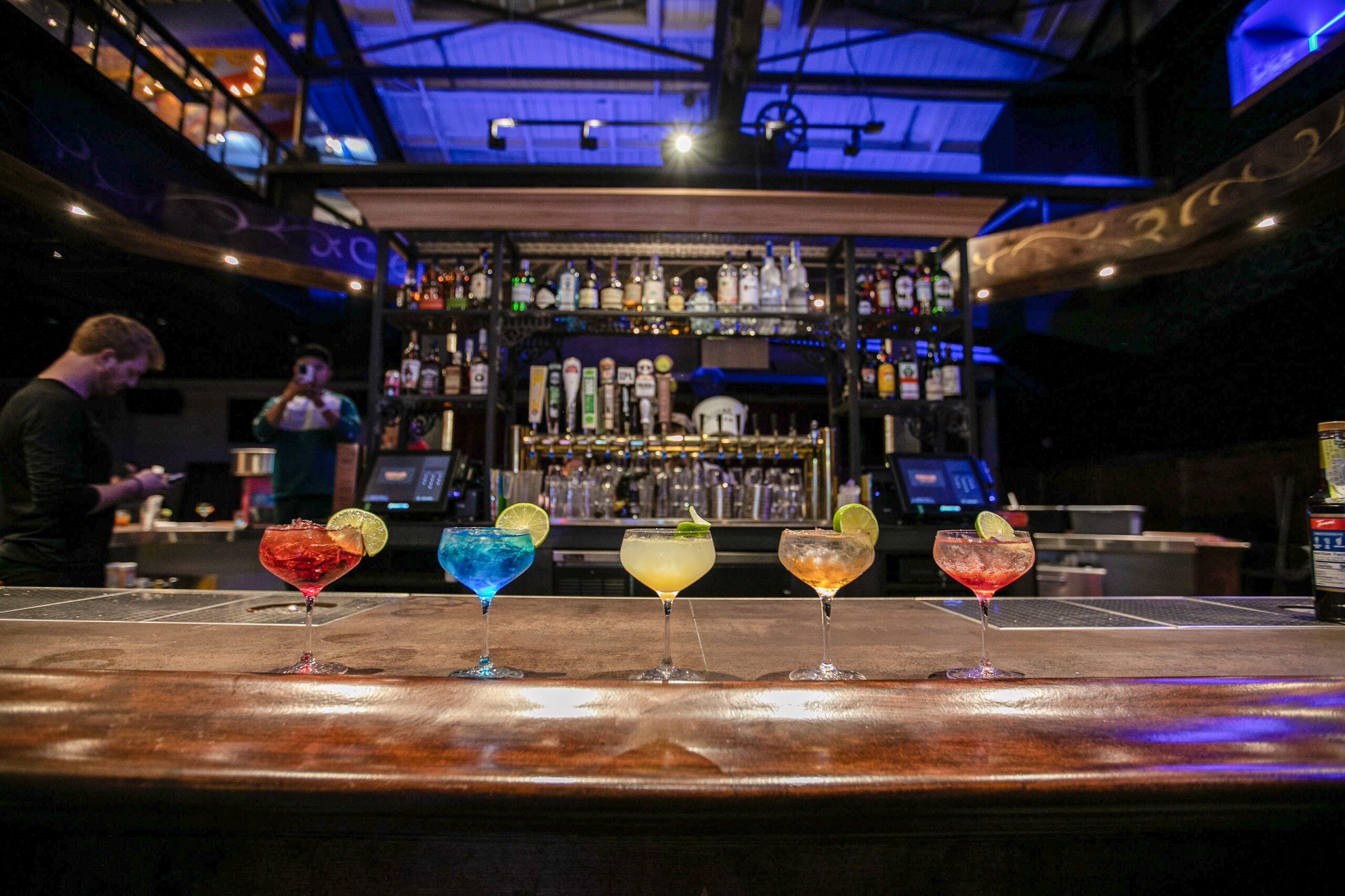San Francisco’s nightlife industry appears to be a couple of weeks into a real recovery, as customers drift tentatively back into neighborhood bars, musicians cautiously book tours, and big employers plan for private parties, according to impresarios serving entertainment venues.
This recovery is more of a springtime bud than full-blown growth.
“January and February were abysmal,” said Joseph “Joey the Cat” Mucha, who also operates the new Thriller Social Club on Bryant Street. “But during the past couple of weeks, people are going out again, and I’m seeing an uptick in my numbers across the board.”
Mucha rents arcade-style games to nightclub venues around the Bay Area and he’s seen an uptick in revenues from neighborhood establishments people can walk to for something to do, but not at destination venues in areas such as South of Market.
Mickey Darius also sees the industry from a birds-eye view as a booking agent who organizes indie-venue gigs for eight bands. He says that indie bands have recently gone back to gigging, said local booking agent Mickey Darius. Musicians aren’t quite making a living yet. But that may soon change.
“The public sees it as, ‘Bands are touring again must be fine.’ It’s anything but,” he said, “They’re also trying to live on money coming in now that isn’t yet there.”
D’Arcy Drollinger, owner of the OASIS cabaret nightclub in SoMa, agreed that though his industry may be finally turning the corner, profits are still hard to come by.
“We had a big staff meeting today, and we were talking about how this coming weekend is the first week we have had a sold-out show,” he said. “I am seeing it as a positive move forward. But I am still coming up short every week. Our expenses are just so high.”
San Francisco’s independent entertainment scene was crushed by Covid-19 measures in March 2020 and saw recovery hopes dashed after patrons stampeded back to bars last summer, and then retreated with the arrival of the omicron variant.
Mucha is well-positioned to identify where things stand because of the equipment he places in nightclubs – photo booths, skeeball lanes, a punching-power machine, etc. His devices enable decidedly post-pandemic-style behavior where patrons gather tightly around games, give each other high-fives, even hug and let out germ-emitting cheers. Mucha can measure the state of the nightlife business by the money he collects on his machines week to week.
This means he was an early witness to the March 2022 coronavirus tsunami. He saw that devastation would extend beyond bars and restaurants to a once-burgeoning offsite party industry nourished by the area’s tech boom.
Before the pandemic, this city was the site of a private-party arms race, where local tech companies would seek to outdo each other – and thus recruit and retain the best staff – with the most appealing get-togethers and swankiest team-building events. The city’s booming tech convention scene swelled this micro-economy when companies would rent entire venues, employing valets, designers, lighting specialists, and thousands of other entrepreneurs and workers.
That business, too, is only now creeping back, said Mucha. He’s recently hosted a few off-site staff parties, including a recent 20-person event for employees of Lyft. And he just got the first inquiry in two years about buying out his entire venue. It was for a party of more than 400 people for the upcoming Game Developers’ Conference March 21 – 25 and required a venue even larger than the Thriller Social Club. But for Mucha, the idea of that type of business returning at all is an exciting omen.
Mickey Darius manages eight bands, having signed the Mexico City skate punk band Cardiel this week. He saw bands first begin returning to the road in September. But he said he hasn’t yet seen a meaningful financial recovery.
“That was very exciting. But it was misleading because the general public had this perception that shows were happening and thought: Oh. We’re back. We’re fine,” Darius said.
It’s risky for bands to tour because venues are not providing guaranteed minimums to bands like they used to as they struggle with higher costs for covid safety precautions and reduced sales from spaces-out events. As eager as they are to perform, musicians themselves are wary about going back onstage beyond a few cities because some places have rejected pandemic safeguards, making exhausted musicians especially vulnerable.
“September was the first month we felt confident sending bands out. But then one member of one of my bands got covid. It was not a mild case, either,” Darius said. “It changed the way that bands tour. They don’t tour longer than a week at a time to limit the amount of exposure they have.”
Despite the cautious words, Mucha and Darius are betting on a substantial recovery. Both are investing in new venues that, in order to make money, need people to jam together indoors for a night of fun. Mucha opened Thriller in November at Fourth and Bryant streets. Business has yet to really bounce back. But he expects to be in the black once downtown workers return to the office.
Darius, too, is betting on a recovery. The Lost Church nightclub, where Darius was general manager before the music venue closed with the pandemic, has signed a lease on a new space in North Beach with plans to open this summer.
“For us, there was always light at the end of the tunnel. Not that we were fortune-tellers or anything,” he said. “But to us, this never looked like, ‘San Francisco is just done now.’”
